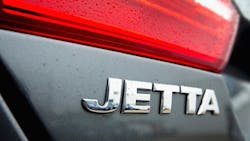VW Makes Progress Towards 3.0 Liter Diesel Settlement: Judge
SAN FRANCISCO—A California judge said Thursday that Volkswagen had made "substantial progress" toward settling charges over illegal pollution cheat devices installed on 3.0 liter diesel cars.
Three months after rejecting VW's proposed resolution of civil complaints and owner lawsuits as "incomplete" and "substantially deficient," district court judge Charles Breyer said a deal was nearer.
That would follow on the German automaker's $15 billion settlement over the largest part of the emissions scandal, its 2.0 liter diesel cars, finalized on October 25.
"I am very pleased to advise you that there has been substantial progress among the parties in reaching an resolution," Breyer said in his San Francisco courtroom Thursday.
"I am very optimistic that we will achieve a resolution," he added, setting a December 1 deadline for an update.
Lawyers for VW and car owners and states suing it are aiming to reach a deal over the company having installed emissions-test cheating software on some 80,000 3.0 liter diesel-engine Volkswagens, Audis and Porsches sold in the country.
The previous deal over the 480,000 2.0 liter Volkswagens in the United States with the same problem, set $10 billion for compensation to owners, $2.7 billion for a fund for environmental remediation, and $2 billion to promote the use of zero emissions vehicles.
Volkswagen continues to reel from the case, after having admitted that some 11 million cars worldwide were equipped with the "cheat devices" designed to evade emissions restrictions while spewing up to 40 times the permitted amounts of nitrogen oxides into the air.
Copyright Agence France-Presse, 2016.
About the Author
Agence France-Presse
Copyright Agence France-Presse, 2002-2025. AFP text, photos, graphics and logos shall not be reproduced, published, broadcast, rewritten for broadcast or publication or redistributed directly or indirectly in any medium. AFP shall not be held liable for any delays, inaccuracies, errors or omissions in any AFP content, or for any actions taken in consequence.
